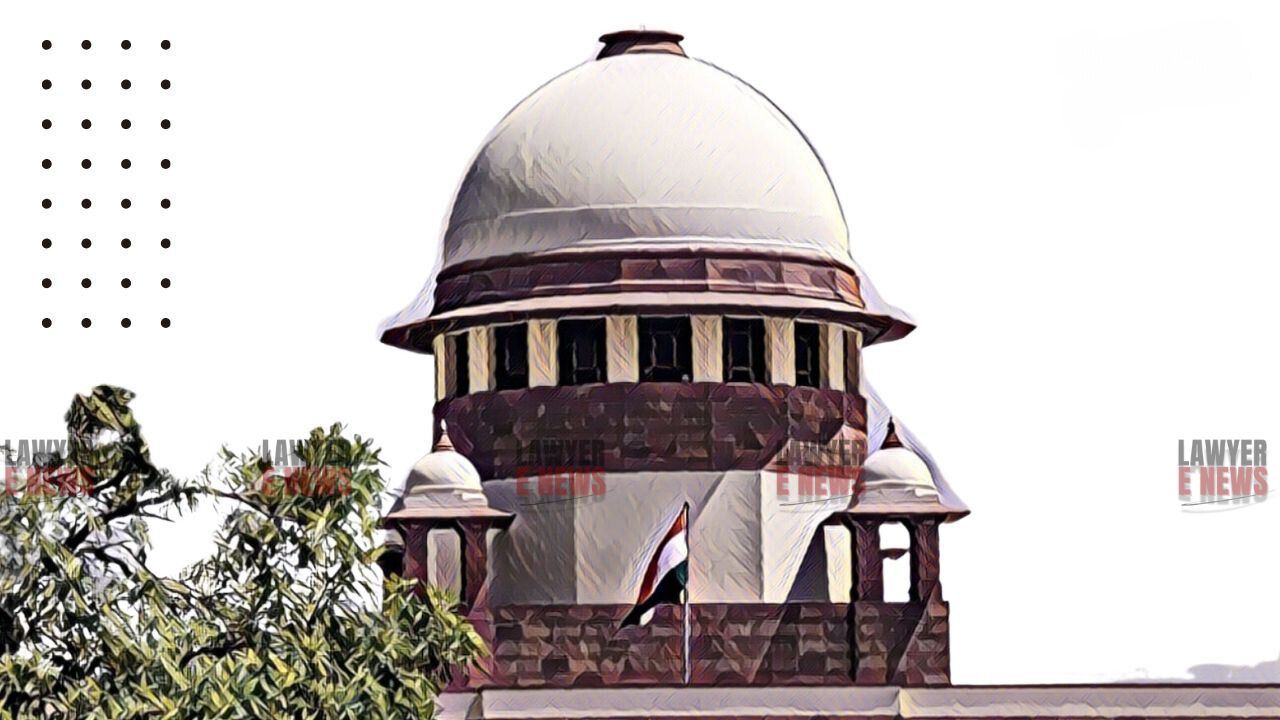-
by Admin
15 February 2026 2:36 AM



"State as a Welfare Entity Cannot Perfect Title Through Adverse Possession” - Supreme Court. On November 19, 2024, the Supreme Court of India delivered a significant ruling that the State cannot claim ownership of private property through adverse possession. A bench comprising Justice Vikram Nath and Justice Prasanna B. Varale affirmed the Punjab and Haryana High Court's judgment, emphasizing that a welfare State, bound by constitutional obligations, cannot dispossess its citizens unjustly.
The Court upheld the trial court’s decree rejecting the State's adverse possession claim and reaffirmed the ownership rights of the plaintiffs.
The dispute pertained to a plot of land measuring 18 Biswas located in Bahadurgarh, Haryana. The plaintiffs, heirs of Amin Lal, contended that the property had been in their family’s possession for decades, substantiated by revenue records and registered sale deeds from 1960 and 1973. The State's Public Works Department (PWD) had allegedly encroached upon this land since 1980 without lawful justification.
The State, in its defense, claimed possession of the land since 1879-80, asserting that its long-standing occupation established ownership through adverse possession. This position led to a prolonged legal conflict that traversed multiple judicial levels.
The trial court ruled in favor of the plaintiffs, holding that the State’s possession was permissive and could not mature into adverse possession. However, the appellate court reversed this finding, accepting the State’s claim. The High Court later reinstated the trial court’s judgment, prompting the State to appeal to the Supreme Court.
The Supreme Court categorically ruled that a welfare State, being a protector of constitutional rights and justice, cannot dispossess its citizens by claiming adverse possession. Such an action would violate the State's obligation to act fairly and equitably in its dealings with private citizens.
The Court emphasized that adverse possession is traditionally a private law remedy to settle disputes between individuals and cannot be invoked by the State to validate its encroachment on private property. Citing its earlier decision in Vidya Devi v. State of Himachal Pradesh, the Court reiterated that the government’s role as a welfare entity inherently disqualifies it from leveraging doctrines meant to resolve private disputes.
The State’s reliance on adverse possession implicitly acknowledged the plaintiffs' ownership of the property. As per Order VIII Rule 5 of the Code of Civil Procedure (CPC), a failure to specifically deny ownership amounts to an admission. Therefore, the claim was self-contradictory and legally untenable.
The Court scrutinized the evidence presented, including revenue records, sale deeds, and the State’s historical use of the land. The plaintiffs demonstrated uninterrupted ownership through entries in Jamabandis, which carried a presumption of correctness unless rebutted. Registered sale deeds further reinforced their ownership claims.
The State's contention of adverse possession since 1879-80 was found to lack credibility. The Court noted that the occupation described as "Bikhar Bahali Kaza"—conditional possession tied to orchard maintenance—could not constitute adverse possession as it was neither hostile nor exclusive.
Moreover, the Court highlighted the inconsistency in the State’s evidence and its failure to establish continuous, hostile possession—a cornerstone requirement for adverse possession. The construction of temporary structures by the State, without proof of an adverse claim, further weakened its position.
The State argued that the High Court had exceeded its jurisdiction under Section 100 CPC by delving into factual findings. The Supreme Court rejected this contention, holding that the High Court’s intervention was justified as substantial questions of law were involved. Specifically, the legality of the State’s claim of adverse possession against its citizens warranted scrutiny.
The High Court’s detailed analysis, including the applicability of the doctrine of adverse possession to government claims, was deemed appropriate. The appellate court's reversal of the trial court’s decision was found to be legally flawed, necessitating the High Court's corrective action.
The judgment reaffirmed several critical principles of property law and constitutional governance. The State, being a model litigant, must act with fairness and uphold the trust of its citizens. Property rights, protected under Article 300A of the Constitution, cannot be overridden by doctrines that facilitate encroachments.
The Court reiterated that adverse possession requires the claimant to demonstrate clear, hostile, and uninterrupted possession against the rightful owner. Mere encroachment or conditional use does not suffice to establish such a claim, especially when the encroaching party is a public entity.
The Supreme Court dismissed the State's appeal and upheld the High Court’s judgment, restoring the plaintiffs' ownership rights. The ruling underscores that the State's constitutional role as a welfare entity precludes it from exploiting doctrines like adverse possession to dispossess its citizens.
This landmark decision serves as a reminder of the inviolability of private property rights and reinforces the principles of justice and equity in the State's dealings with its citizens.
Date of Decision: November 19, 2024
